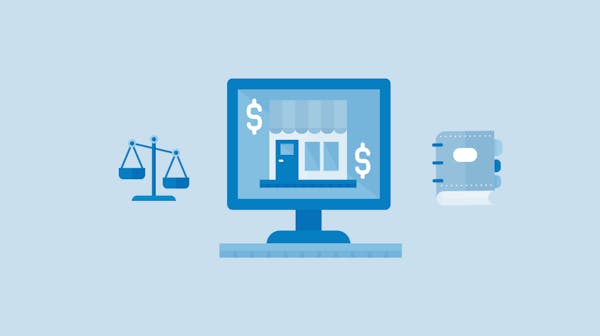Selecting the appropriate types of invoices is critical for the smooth operation of your business, but it can be confusing. The right invoice not only outlines the transaction details clearly but also ensures proper cash flow management and compliance with legal standards. However, with various invoices to pick from, it’s crucial to understand which to use when - and that's what this guide is for.
What Types of Invoices Are There?
Standard Invoice
Every transaction starts with a standard invoice. It's a straightforward document that breaks down the goods or services provided, their prices, and the total amount due, along with payment terms and deadlines. For instance, imagine billing a client for a completed web design project; the standard invoice—which is one of the essential types of invoices—would clearly list each webpage designed, any additional services like SEO optimization, and the cumulative cost.
Use a standard invoice when:
- The job is straightforward, with no special payment arrangements.
- Full payment is due after the delivery of goods or services.
- The client expects a traditional invoicing setup.
Proforma Invoice
Think of a pro forma invoice as a prebill, offering clients an estimate for the goods or services to be delivered. It's a good faith estimate to ensure both parties are on the same page regarding the scope and cost of a project. For example, if you're quoting an upcoming custom software development project, issue a pro forma invoice to outline the cost breakdown.
Here are the scenarios when issuing this particular type of invoice is advised:
- To provide an estimate before committing to the terms.
- When the final details are not yet solidified.
- As a way to negotiate the project's scope and price before finalization.
Recurring Invoice
For ongoing services like monthly subscriptions, web hosting, or managed IT services, a recurring invoice fits the bill—quite literally. Say you charge for managed IT services monthly; a recurring invoice ensures consistent billing without the need to manually create a new invoice each time.
Maximizing the advantages of recurring invoice types entails:
- Use them for agreed-upon regular services or retainer agreements.
- Look into automation tools to streamline the billing cycle.
Advance Invoice
When requesting an advance payment or deposit for a large order or long-term project, advance invoices come into play. Let's say you need a down payment for a bulk product order; an advance invoice details the upfront cost.
Managing cash flow with advance invoices involves:
- Aligning the upfront payment with the costs of initial project phases.
- Ensuring clients are committed and engaged.
- Improving budget management for large-scale projects.
Credit note
Sometimes, things don't go as planned. Overcharges, returns, or rebates necessitate issuing a credit note, which signals a reduction in the amount the client owes. Processing a partial refund for an overcharge is an apt scenario for a credit note.
It is important to follow the following procedures to ensure correct and transparent handling of situations where invoices that have already been issued need to be corrected or adjusted:
- Always issue a credit note instead of erasing previous invoices.
- Clearly communicate the reason for the credit to the client.
- Reflect credit note in your bookkeeping for accurate reporting.
Concluding Remarks
Choosing the appropriate invoice variety is not just a billing practice—it's fundamental to professional communication, cash flow management, and ensuring legal compliance.
Each type of invoice has its own use:
- Standard Invoice: The go-to for most transactions.
- Proforma Invoice: Ideal for estimates and negotiations.
- Recurring Invoice: Best for ongoing services.
- Advance Invoice: Suitable for securing initial funds for big projects.
- Credit Note: Necessary for adjustments like refunds and rebates.
And for a comprehensive solution to manage all these types of invoices effectively, embrace the convenience of InvoiceOnline.




